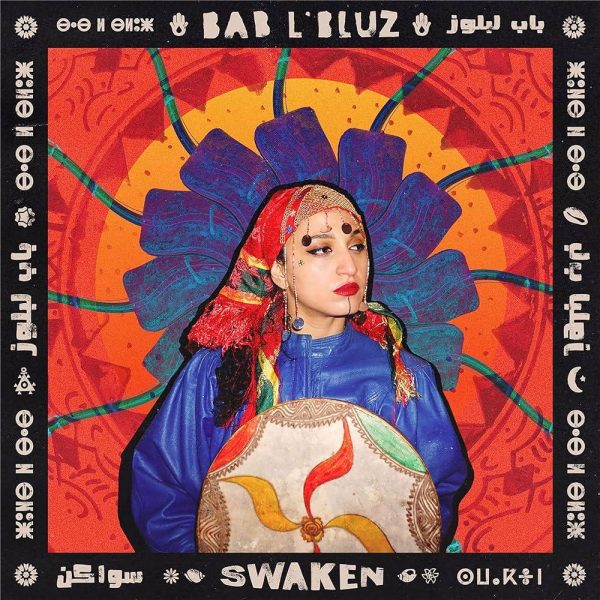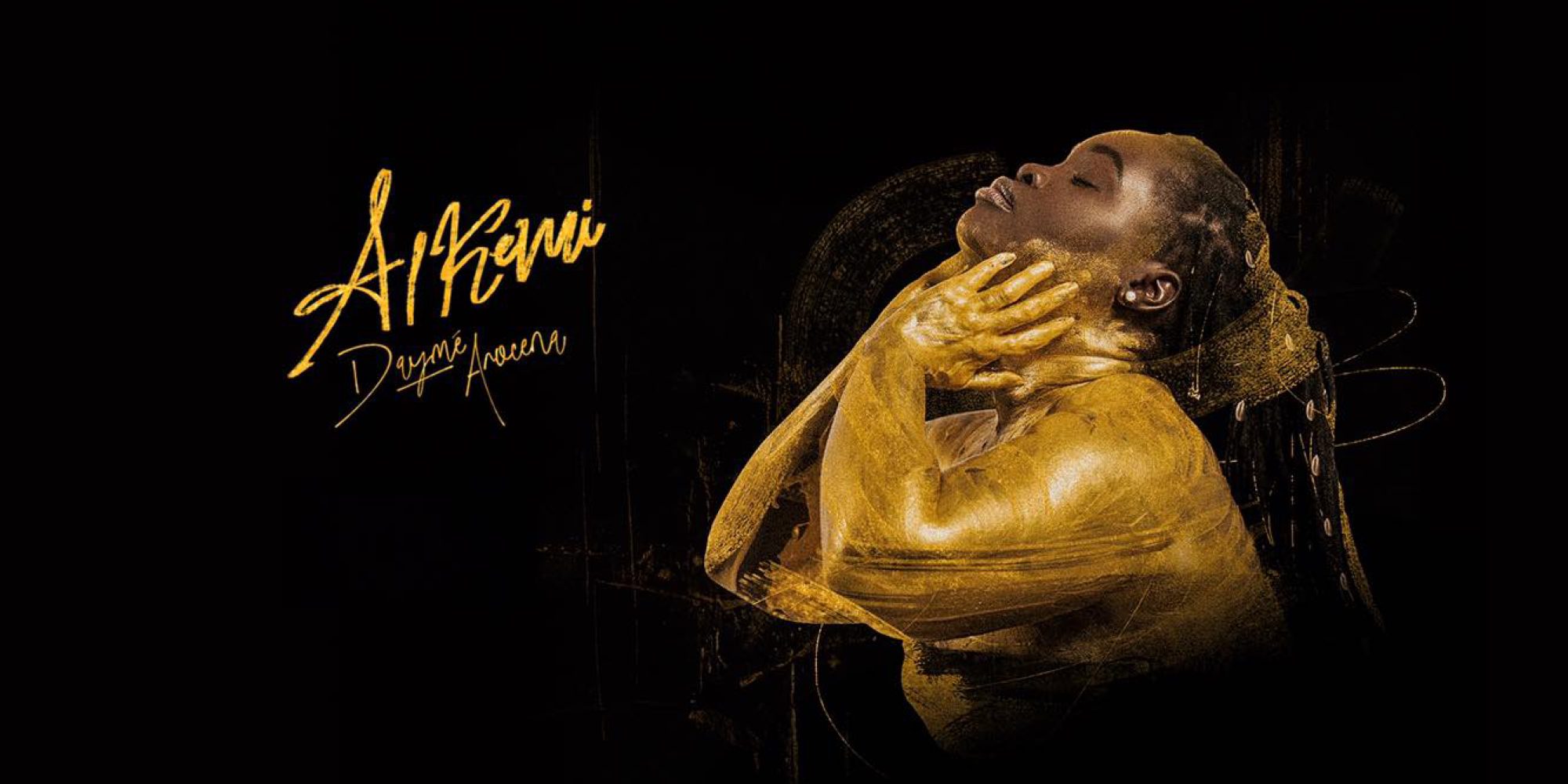Cuba’s Daymé Arocena has been singing publicly since she was eight years old. A musical prodigy, she sang lead for her first band, Los Primos, at age 14. A practitioner of the Santeria religion, and a master of its profound musical traditions, Arocena is also schooled in jazz, and broke onto the international scene with a bracing and innovative merger of Afro-Cuban roots and jazz. The Guardian has called her Cuba’s “finest young female singer.” Afropop Worldwide has followed her career with amazement since her 2015 debut album, Nueva Era. We were proud to record her live set of original Afro-Cuban jazz at the 2022 Afro Roots Festival in Miami. So we were intrigued when she recently released her fifth album, Alkemi, taking a surprising turn into pan-Caribbean pop, with a healthy dose of soul and R&B. Banning Eyre reached Arocena at her current home in Puerto Rico to discuss the new album. Here’s their conversation.
Banning Eyre: Daymé, it’s very nice to see you again. You might remember our meeting in Miami at the Afro Roots Festival in 2022. And it was great seeing you last year in New York at that wonderful Town Hall tribute to Dizzy Gillespie and Chano Pozo with Arturo O'Farrill and the Afro-Latin Jazz Orchestra. That was quite a night.
Daymé Arocena: Oh wow. Yes. Nice to see you too.
I've been listening to your new album. I gather you've moved to Puerto Rico now.
Oh, yes. I love it so much. It's my favorite place right now.
Really? Tell me about it. You went there to record and decided to stay. Was that a surprise for you?
Kind of, yeah. I just arrived to record my album and I fell in love with the island.
You know, we've listened to all your albums and are huge fans of what you do. You have gone so deep into the Afro-Cuban music and jazz and made such interesting combinations. Here, you're going for a more Pan-Caribbean, pop oriented sound. Talk about that. What was your idea for this album?
I really wanted to put together an album that represented the music I used to love when I was a child and I didn't have many conflicts about making a certain type of music. When you are young, you're just enjoying yourself and enjoying music. You're not really thinking that you want to please people's minds or people's tastes. So there was a moment that I forgot how much I used to enjoy music just the way it is, if it is simple or if it is just fun, if it is just danceable. I decided to find the right producer to put this album together, because at the end of the day there is no way for me to change who I am, the songwriting I have and the way I write music. So it is always gonna be a little bit jazzy, Caribbean, rumba, folkloric, right? So I wanted to keep that, but just make it more suitable for the little Daymé that I was.
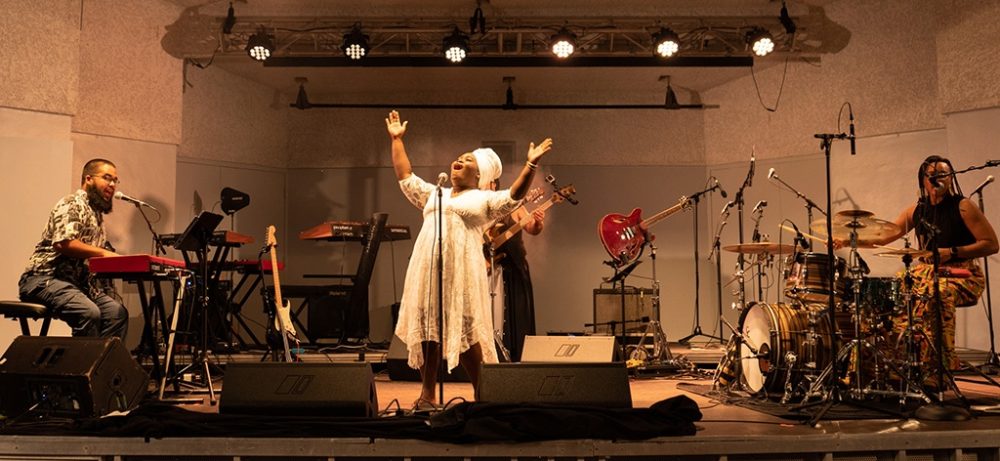
Eduardo Cabra was your pick as producer, maybe for his work with Calle 13, which is so impressive. How did you come to pick him?
For me, he was the number one choice since the moment I decided this was the direction I wanted to take, because Eduardo… he's someone that knows how to blend both worlds. He knows how to make any folkloric Caribbean music or genre into pop. He knows how to combine both worlds. He has been doing it for a long time and I admire his work, not just with Calle 13, but with other artists, especially Vicente García. I can see how good he is at keeping the folkloric side and the jazzy side of things but making it pop. If you want to play that music in Coachella, people are gonna like it. It doesn't matter if it's jazzy. He has that middle point. That for me was amazing.
I guess that helps to explain the title Alkemi, which I understand is the Yoruba word for alchemy.
Well, alchemy is like a cosmovision of transformation and transmutation, right? So I definitely wanted a name that said something about changing and transforming, mixing, blending things. So I found alchemy. And I fell in love with the concept of what alchemists back then used to do. They thought they could create gold and they had this vision of mixing things together for a better result.
Right.
At the very beginning, the idea of naming the album Alkemi was more focused on the music, but now this album has changed me. It started as a musical journey and now the music transformed me as a human.
The music changed you. That’s interesting. Well, it made you move to Puerto Rico for one thing.
That’s one of many changes it made to me. I'm not a woman anymore who depends on others to feel happy. I was like that before, but now I'm a woman who, when I see myself in the mirror, I dance. I used to be a woman who would look in the mirror at my reflection and would judge myself all the time. So now when I look at myself in the mirror, I feel so good with the woman I am. I feel more sexy, I feel more beautiful, I feel more empowered.
That’s beautiful.
I feel I just need myself to succeed spiritually. Of course, I need a lot of people to work with me and to help me and support me, but in my spirituality I just need myself to feel free.
That's wonderful. Let's talk about a few of the songs. I think the very first one, “Que Se Lo Lleve El Mar (Let the Sea Take it Away)” kind of encapsulates the whole thing. You've got the jazzy harmony, you've got the Cuban percussion, but it's clearly a pop song.
I wrote that song many, many years ago. It was supposed to be the intro of Cubafonia, my album of 2017. Then we didn't use it because we thought it was great to start with “Eleggua” and then we didn't find another spot for the song. It wasn't the same arrangement. I don't know, we had a different arrangement. And then the song came back to me in the middle of the pandemic and it took a totally different vibe for me. I felt like the song was talking about restarting, like being reborn. So I wrote more lyrics. I added new lyrics to the song and decided that it was going to be the intro of Alkemi because it's saying something about the sea taking away anything I don't need in my life anymore.
I love that: the sea carrying unwanted things away.
Yeah, I'm getting ready for the brand-new start.
The song “Por Ti (For You)” has a powerhouse video, which we posted on our site. Again, it’s mixing tradition with a heavy dose of funk and brass.
But this is a song inspired by a really sad story, not mine, of a woman who was killed by her husband. When I heard the story, I thought a lot about it. I thought, “Why she didn't stop the relationship before it happened?” I thought about the power of women, and about stopping things when they have to be stopped. So I wrote this song inspired by that idea of sharing with other women, like a song that they can have in the back of their head when they are in a situation where they need to stop and they need to say, “This is over.” So, “Por Ti” is basically a song about getting strong enough and getting empowered to say, “I don't need you anymore.”
That’s very strong. Thank you. I think on a lighter note, the song “American Boy” has a cool, minimalist video. You keep singing “Farola.” Is that the name of the American Boy?
Farola? No. Farola means street light. Not street light. How can I say that in English? It's like these old-fashioned lights that back in the days when people didn't even have electricity, and they would light the streets.
Lanterns?
Lanterns. Yeah, something like that, with the fire inside.
So how does that connect with the idea of the American boy?
Oh, that was a story that I had with an American boy 10 years ago. I met a guy in my early twenties. He was just so special and he changed my perspective of who I was just by holding my hand, just by making me feel beautiful. I had such low self-esteem. My relationship with him was short. We went to Havana to the Havana Jazz Festival. So we really just hung together for like a weekend, but he made a huge impact in my life.
How so?
Because, for me, there were many conflicts. I felt like a Black, fat woman was not beautiful. I didn't feel I was a beautiful woman at the time, and I never imagined myself hanging with a white man. And so him holding my hand as the girl that is hanging with him... He didn't have that type of mindset at all. He's a New York guy, a musician, an artist, so he didn't see any of that. He didn't see what I saw of myself. He saw a woman that he liked and that was it, a talented woman performing a jazz standard. That's how we met. So basically I kind of impressed him by performing in that jazz festival and that's how he approached me and that's how we met.
He saw a spark that I didn't see, that I didn't know I had at that time. So basically the song is saying that he was a lantern for me, and when he left, I felt like that light left with him. It was a weird and strong feeling I felt when he left.
That experience really stayed with you.
Oh, yeah. We are we are really good friends now. He is married. I am too. Well, kind of… but he's married. I know his wife. We are good friends, so there is nothing behind that. You know, sometimes you meet people and you have beautiful chemistry with that person, but it doesn't mean that you have to be a couple. So it's not about that. And we have performed together many times now We have written music together. He became like a brother, a really good friend.
And now he's memorialized in this beautiful song.
Oh yeah, and he's probably one of the only men in the world that knows I wrote a song for him. When I told him, it was a beautiful thing. He started crying, because we both know what we felt.
It seems that these songs are coming out of your personal experiences, experiences of self-discovery. You're writing about experiences that moved you, that touched you or even changed you.
Oh, yeah, yeah. That's the way I heal. Music is my healing therapy.
And sometimes the message is tough. I'm thinking of this song, “I Rather,” where you're telling someone you don't want them close to you. Talk about that one.
That's like a second part of the story I told you of “Por Ti.” It was another song I wrote around those days when I was so concerned about women having toxic relationships. My inspiration was focused on that in those days. Like I couldn't believe it. The thing is that, after he killed her, he cut her body in like a hundred pieces. I was so shocked.
Wow. That is shocking.
Sometimes you can't believe human beings, the way they are. And yeah, the good thing about that is that at least I got music out of it, music to make me feel strong and to empower other women too.
Let's talk a little bit about the style of the music here. There are some points when reggae comes into the picture a bit like on “Cómo Vivir Por Él (How to Live for Him)” and “A Fuego Lento (To Simmer).” Talk about what reggae has meant to you. I've been thinking about it because I just saw the Bob Marley film, One Live. I don't know if you've seen it. It's very good.
I actually went to the premiere in Miami and I got to meet a couple of his sons and yeah, it was beautiful. I love reggae so much. I love reggae in Spanish actually. The way I discovered Vicente Garcia was through a reggae song.
And he sings with you on “A Fuega Lento,” which starts as a ballad and kind of lifts into reggae.
But I never saw myself singing reggae or anything similar, or ska or anything. I never saw myself there. But that was Eduardo's influence. He said, “Yeah, Puerto Rico has a lot of reggae.” Eduardo used to play in a reggae band when he was really young.
Ah ha. So he reconnected to it. He said, “Let’s put a little reggae into the mix.”
Yeah.
There are so many different styles weaving through these songs. There’s a bossa nova touch on “Suave y Pegao (Soft and Sticky),” the song you did with Rava Pabön. That's another beautiful connection you're making with Brazil.
Yes.
Is there one that you particularly want to talk about the message in? One that I didn't mention?
“Cómo Vivir Por Él” for me is the most interesting song for the lyrics. It has two verses. They both are built with the same words, but they both say something different. The first verse is describing a separation, when you had a relationship and you finished that relationship and how you felt about it. And the second verse is saying how you can rebuild yourself after that process. The message is you cannot live your life through other people's lives. Your life just belongs to you. And you shouldn't feel like you have to live because of someone else, you have to live because of you.
So, now it's a song that has made a great impact in my life. I wrote it two years ago when I was in a totally different situation than the one I have right now, sentimentally. And I thought, “What is this song telling me? I'm not living anything related to these lyrics. So why?” I didn't get why I was writing that song, and now, two years later, I understand why. Sometimes songs are kind of telling me in advance what's gonna happen.
Lucky you! Well, it's a beautiful album and thank you so much for talking to me about it. It's lovely to see you again. Are you going to be touring this material? I know you played recently in New York. I wasn't able to be there, but how are you going about playing this material live?
This is a totally different project. This album is more focused on the pop vibe and the way we do the music live is different. I'm playing to tracks. There’s a strong setup of percussion with everything—drums, bata, timbali, congas, shakers, like a set-up of percussion, and two backup singers, beautiful, strong, powerful women, and tracks. So it's not a jazzy vibe anymore. It's a dance vibe, tracks and drums and vocals.
Interesting. Well, good for you. I always admire an artist who's able to do something the audience doesn’t expect. Everyone knows you for one thing and you say, “That's great. I'm not abandoning that, but now I'm going to do this.” So good for you.
Thank you.
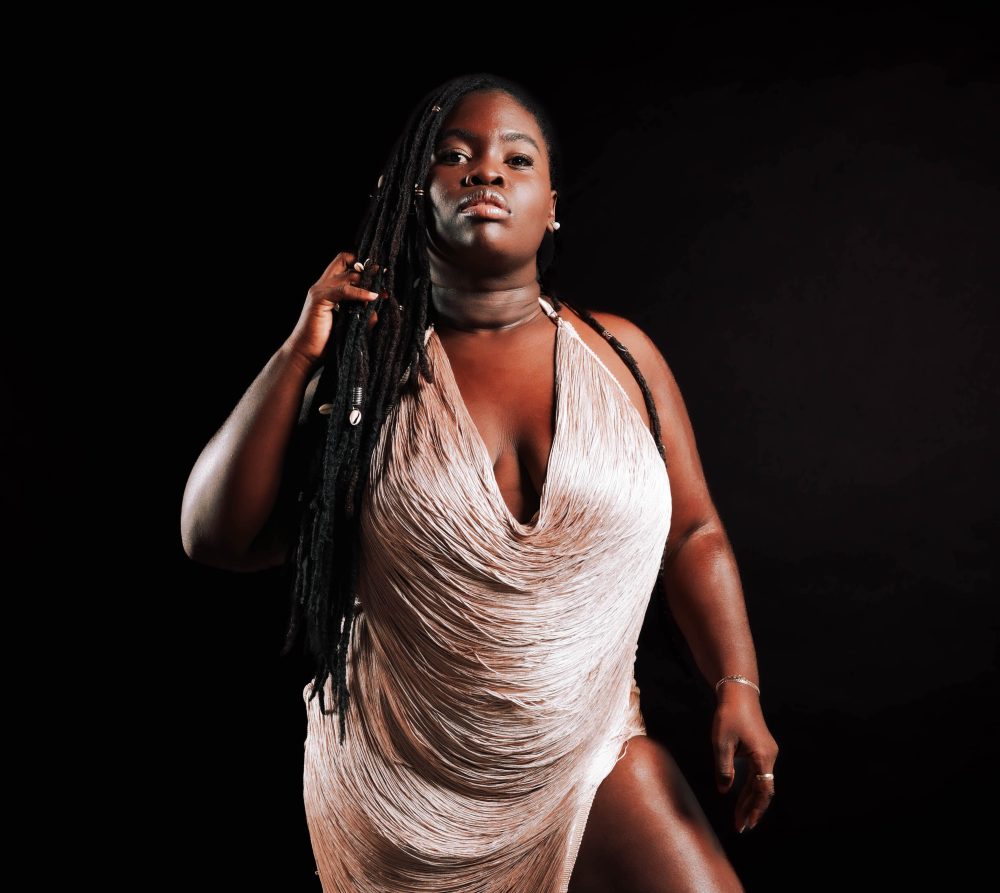
Related Audio Programs
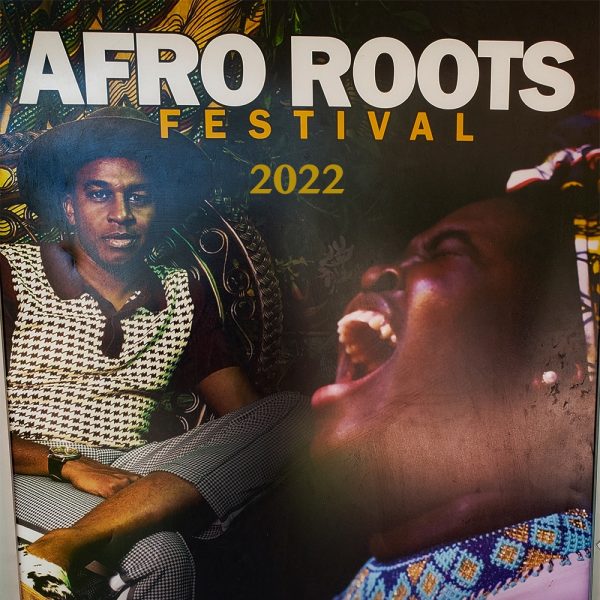
Related Articles
